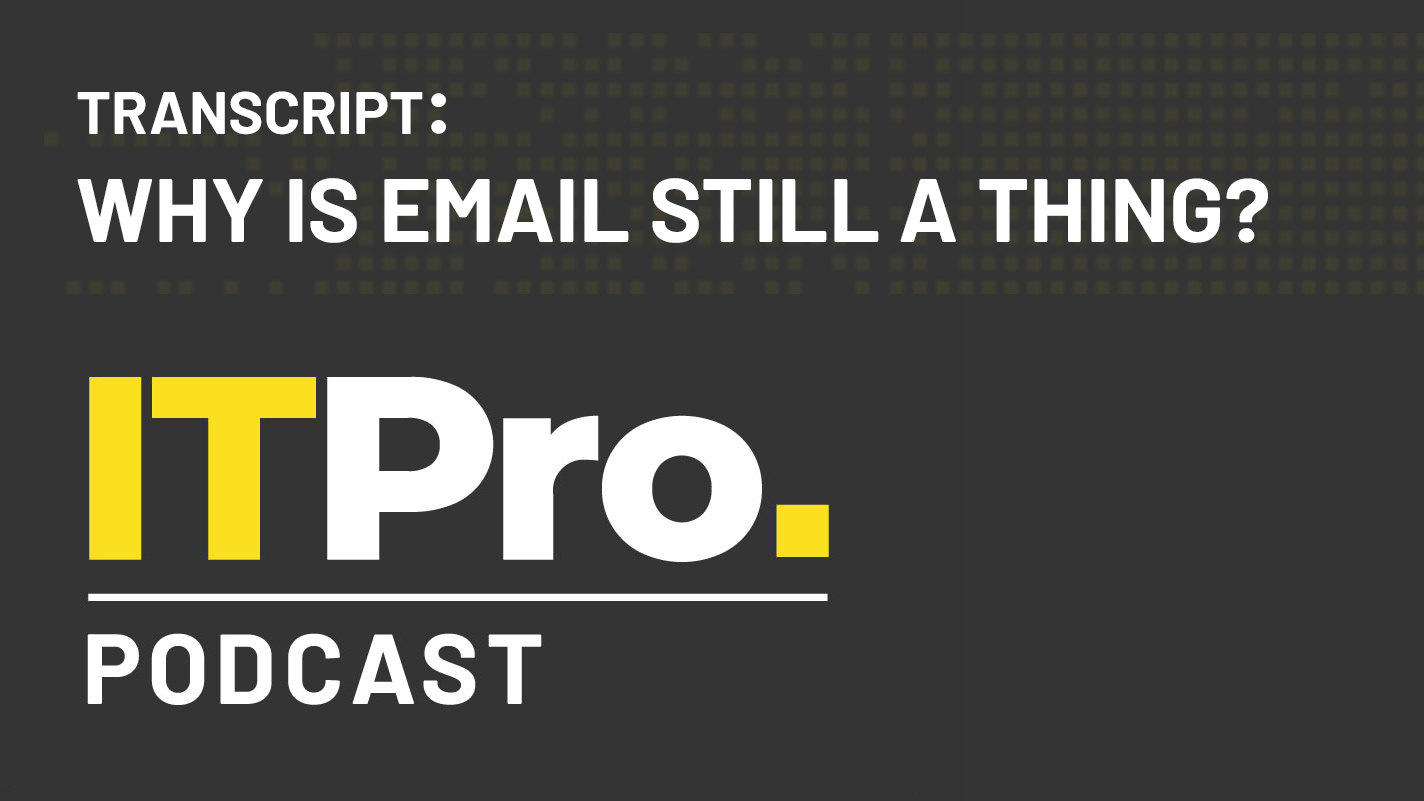
This automatically-generated transcript is taken from the IT Pro Podcast episode ‘Why is email still a thing?’. To listen to the full episode, click here. We apologise for any errors.
Keumars Afifi-Sabet
Hi, I'm Keumars Afifi-Sabet.
Sabina Weston
I'm Sabina Weston.
Adam Shepherd
And I'm Adam Shepherd.
Keumars
And you're listening to the IT Pro Podcast.
Adam
Now, we've spoken about a lot of business tools on this show. But there's one that reigns supreme above all others, the unquestionable king of business productivity tools and the glue that holds the modern enterprise together. I am, of course, referring to the humble email client. The venerable technology has been around for half a century but despite its advanced years, it's still an absolutely essential tool for every commercial business on the face of the planet. Without internet access, many businesses would simply grind to a halt. But with so much progress in the field of cloud based collaboration and communication services over the past few years, why is this decades old technology still such an utterly dominant force? So to kick off this discussion, then, let's talk about our inboxes. How many emails would you say you send in the average week? Because I know, for me, I, I don't think I can even count but it's got to be in the hundreds at this point. Sabina, what about you?
Sabina
Um, for me, it really varies, you know, I've only sent let me see this week. I think I only must have sent like, around, like, 10 of them, just by maybe a bit more.
Sign up today and you will receive a free copy of our Future Focus 2025 report - the leading guidance on AI, cybersecurity and other IT challenges as per 700+ senior executives
Keumars
It's not bad going.
Sabina
I mean, it's, it's, I mean, yeah, I guess when you do like news and stuff, you always want to like comment and stuff. So I try to sort of like, you know, contact as many people as possible and, but, you know, there are days where like, I send that amount, like, you know, per day. So it's probably like, gonna be like, 10 emails per day sometimes, or something like that. So. So yeah, I'm looking through this, I think the 19th of January, just looking at my at my sent emails from the 19th of January, was a very, was a very busy day for me. I don't know why, but it was just like, I have no idea why I sent all these emails. I think it was about like, 5G at US airports, that we wanted a comment on and yeah, so this is why I was like talking to a lot of analysts. But But yeah, it varies greatly, like sometimes where it's like, you know, I receive a lot of emails, but like, don't reply to them. And other days I'm like more, yeah, I like to engage more on other days. So yeah, what about you?
Adam
Yeah, for me, it's, it's, most of them go unreplied to. But even so, the amount of emails that I send on a weekly basis - I'm sure a lot of our listeners will be able to relate to this - it sometimes feels that a good chunk of my job is just sending and replying to emails. Keumars, what about you?
Keumars
I think I'm maybe somewhere in between the two of you in terms of how many I send a week. Even then I look back on the week and think, who have I been talking to? Who am I communicating with? But the real question, I think, for me is, how many emails do you receive in a week? I think it's very, very easy to get absolutely overblown, with people trying to communicate with you.
Sabina
Yeah, I mean, it's it really is, you know, it does have like, a big potential to like impact the way you work and just like Adam said, like, I think he said something about like your job being mostly replying to emails, that's actually proven to be an issue with with a lot of companies especially, I think there was was research which I covered last year about how UK based employees spend nearly one working day each week just managing their inboxes so when you work five days a week, and like one day out of these five is just spent on emails, I mean, obviously it's like stretched out throughout the week right? But like, that's, you know, that's a fifth of people's jobs is just emails.
Keumars
Yeah, I can totally relate with that. It got to a point last year for me where I had to set like a development objective for myself to manage my inbox because it was overwhelming me in you know, other respects of my of my work too, because you know, let's say you have a very messy desk sometimes, you're not gonna probably be as productive as you might be with a very nice and clean desk. In the same way my inbox was a, you know, a garbage fire and I needed to find ways of managing this in order to manage the rest of my workload.
Adam
Okay, so call out time. How many unread emails do you have in your inbox right now?
Sabina
Oh my god, this is probably gonna get me fired.
Adam
I guarantee that I've got you beat.
Sabina
No, 12,589.
Adam
Go on, Keumars.
Keumars
So in terms of the actual emails from from real people, I'd imagine, let me have a look. Okay, slightly better than I thought; it's 29 unread messages.
Adam
29?!
Keumars
29. The, the the development objective worked, I am now really pretty much on top of my inbox. Overall, however, if you include newsletters, different kinds of promotions, and so on: 3,832.
Adam
You are both like tiny babies. I currently have 60,981 unread emails in my inbox.
Sabina
How many years have you been at IT Pro?
Adam
Um, well, that's so I've been, I've been here coming up for six years now.
Sabina
I still, I think if you compare it, I'm still doing, I'm still like on a bigger increase than you are.
Keumars
You're on your way.
Adam
That's still with like, intermittent, you know, select all, mark as read every couple of years or so. Cause yeah, beyond a certain point, it's, it's just like, Okay, I don't need this email from, you know, like two and a half years ago, with, you know, this two email chain about a press release. But it's, I think it's indicative of how reliant we are collectively, not even just as an industry, but the business community at large, that the kind of struggle to maintain kind of Inbox Zero, quote unquote, is, you know, such a such a goal for many people, you know, just keeping on top of email traffic is something that actually has to be worked at. And you know, people have to have strategies and plans for; which, when you think about it, is kind of crazy, considering how many alternative communication systems we have. So like, do you think that email is more or less convenient for you guys than something like WhatsApp, or Slack or video chats?
Keumars
That's a, that's a very good question. Because I actually think it's more and less convenient, in different ways. I think the, what it comes down to for me is - and I've been thinking about this, because I hate email, and I want it to die - but I think it serves a very important purpose in a sense that it's a space where you know, it's a medium where a lot of people who are going to try to communicate with me only live there, they're not bleeding into places like WhatsApp or you know, whatever platform you might choose to use, you know, where you might you know, actually choose to speak to people, your contacts and so on. It's a very useful way of keeping people at arm's length to some extent.
Sabina
Yeah, I think I agree. Yeah, I think email, I use email for work, mostly. Slack I dedicate mostly to sort of like within company messaging, like with you guys, while WhatsApp I don't have any, I don't want to use WhatsApp for work. WhatsApp is for me for receiving dog pictures from my mum. That's like, WhatsApp is like you know, personal time and yeah, that's that's for my friends and family. So I tried to keep people off WhatsApp, definitely. Email for me, I treat it some as a sort of like, I kind of treat it like an instant messaging platform as well a bit, especially since I have it on my phone. I you know, I answer a lot of emails like from my phone. Yeah. Especially if I'm if I'm out somewhere. And if you if you have time off, for example, if you're going on annual leave, you mute your email app, right. Yeah, and that's for one that you set out of office for and yeah, so this is like for me email is, is definitely a good way to sort of like to to establish the sort of like healthy boundary between work and personal life.
Adam
Hmm. Well, here's an interesting question then. Do you think your opinion would be different if you had have a dedicated work phone with like a separate WhatsApp account. And you know, separate instances of, you know, things like text messaging and WhatsApp and other kind of - or like a dedicated business Twitter account or Instagram account or whatever that was just for kind of work messaging.
Sabina
Yeah, I think I think so. I mean, my, my flatmate has a work phone. And so I see the way she sort of like, struggles with two devices at times and like, tries to make sure she has both. I think it's an added stress, because like, you're not only like trying to not lose your own phone, but also your company phone. So I think it's just like a bit of an added burden. But then at the end of the day, like, I see her just, like, switch her phone off, like, her work phone off and to me that's, you know, that's, that's pretty cool. I mean, that's, you know, she's like, she switches off at 6pm. And that's it for the day, I only like, switches it back on in the morning. And, for me, that's great. Like, for me, I still see emails, like every every part of the day. So yeah, there's like, coming coming into my phone, even if I shut my work laptop, so yeah, yeah.
Adam
And I think in terms of the convenience of basically anything that isn't email, I do find it much, much easier to kind of get, get things done quickly, in terms of speaking to people and getting information and having those very kind of quick interactions where you don't necessarily need to dump a load of information. It's just, you know, Hi, do you have X, or, you know, are you free at X time, done. And there are, there are a few kind of professional contacts that I know well enough to, you know, to have their their numbers and to talk to them on, you know, WhatsApp, or Facebook Messenger or whatever, whatever it might be. And I find those interactions are much, much more convenient than people that I have to email. And it's the same thing with Slack, there are a few people, kind of within any organisation that will default to email, even when platforms like Slack or Google Chat or whatever, are, are available. And having to kind of fall back on email feels really clunky and slow, when you're used to things like Slack, which have not just the kind of the sort of instant response quality, but also the flexibility in terms of things like sharing links, or videos or, you know, working collaboratively and all all the kind of stuff that that goes along with instant messaging. So I do I do find the idea of doing more of my professional communication over WhatsApp and instant messengers to be quite an attractive proposition.
Keumars
I mean, the user interface is certainly loads better on platforms like Slack, and the overall experience is just so much cleaner and more pleasant. And, you know, it's like a godsend that we don't need to use email to talk with each other. We don't need you know, hundred message long email chains, sharing GIFs and so on.
Adam
But there are plenty of organisations where that's still the case. Yeah,
Keumars
Absolutely true. And I can't, I can't believe that, for me, it used to be that way; places I've worked in the past and just moving on from that, it's, it's so much better. But I guess, in that sense, there's still a place and a role for email. When you're, I guess more communicating externally, then amongst yourselves or with personal contacts.
Adam
But Slack has been rolling out kind of more and more tools to try and make that kind of cross company collaboration easier. You know, they've got things like shared channels, they've got things like shared workspaces, single channel guests, for bringing in people from partner organisations, all of which is kind of designed to make it easier to hook two kind of Slack instances together. And Microsoft Teams is doing similar things. And this idea, I'm surprised that it hasn't gotten more traction, because it does, you know, let organisations move away from that whole long, winding email thread thing, and there is nothing worse then trying to find one specific piece of information that is buried in an email thread with like, 80 responses in it.
Keumars
Yeah, absolutely. I suppose the the question would be, how would that work in practice? Because it helps me to kind of look at Slack or alternative platforms as a way of, you know, this is your organisation, these are the people within, you know, these are the different departments and you know, who to contact for what, and it's all very, you know, there's a space, it's quite clean. Now, if you try and bring in other organisations and other Slack instances, I think it could potentially get very messy if it's not managed carefully.
Adam
Well, I have had some experience with this. And it is surprisingly easy to kind of to bring those external individuals and external organisations into Slack environments, you know, it's very straightforward to bring bring them in and give them access to a specific subset of channels, whether that's channels for, you know, particular projects, or for ongoing kind of areas of concern. For example, if you have a, an MSP who's providing IT services, you can bring them in and give them kind of full DM access to anyone in the organisation, but restrict their access to kind of channels within Slack environments, to specific kind of IT focused ones. And the kind of permissions and access controls around that are actually really quite robust for that kind of thing. And it's so much more convenient than having to raise kind of email tickets.
Keumars
I, I'm not going to argue with that. I absolutely don't think there's much about email that is convenient.
Adam
So one of the features that Slack tried to roll out to try and kind of help enable this kind of cross company connection was Slack DMs, which was part of the kind of overall Slack Connect kind of feature set, which was essentially a way for anyone on Slack to DM anyone else on Slack, regardless of whether or not they were part of the same kind of company or organisation. They could just send them a message from their Slack instance, to the other person's Slack instance. But that was very swiftly dropped.
Keumars
There were lots of harassment concerns, if I remember correctly, I think it was 24 hours, 48 hours, something like that before they rolled it back.
Adam
It was a very quick turnaround, yeah.
Sabina
I mean, they did try to save it by introducing these security features. In late 2020, I think they announced that they were planning to roll out sort of verification for users, as well as this firewall protected app builder, apparently, but yeah, then ultimately, it became, I think we abandoned the external message invites, like, completely in early 2021. In March.
Keumars
You've essentially just described how email works anyway, though. I mean, anyone could set up an email account and message anyone's publicly available email address with anything they want. And often, there's no verification at all. You'll get abuse, harassment, and all sorts of unwanted messages. I'm, to some extent, I'm playing devil's advocate here, because I don't think that's great, either. But it's, it's curious to me how thinking back, Slack faced such heavy backlash over this, when essentially, they were trying to replicate a feature that's been around since email was invented. And I'm wondering, I guess why that happened, why people didn't kind of connect the dots in a way, but also what that says about email.
Adam
Well, one of the big problems with that Slack feature in particular is because the, so how it would work is you would get an email, essentially, in your inbox saying, oh, you know, so and so wants to invite you to collaborate on Slack and you could add a little, a little note to that request. And there was no filtering on the the notes. So the note to kind of connect on Slack, could say whatever, regardless of how kind of, you know, violent or abusive or whatever it it was and because these invites were landing in people's inboxes from a generic Slack email address, you know, the whole kind of like, no reply, you know, automated email sender type things, there's no way to, to block it, really. Whereas if it's someone just, you know, emailing you from their email account, even if it's a disposable burner account, you can block that sender. And then, you know, they, you know, at the very least they had to set up a new account to keep emailing you. So that was one of the kind of the big issues, but I do sort of see what you mean Keumars, in terms of it does make you kind of reassess some of the kind of inherent issues of email that we've all just kind of, I guess, learn to live with, you know, because it's been normal thing.
Keumars
We've priced it in.
Adam
Yeah. We're just sort of used to it.
Sabina
I mean, it's interesting that this got such a, such sort of like massive backlash. And yet, you know, it wasn't even - I mean, maybe I'm just like, comparing apples to oranges - but this isn't even like a fraction of how bad the zoom-bombing issues were.
Adam
Oh, yeah.
Sabina
So that was, that was really bad. I think it took like months to fix. So you know, that was like, dominated sort of like headlines, like, during the first months of the pandemic, of like, how people were getting, they were getting bombarded by porn, and some really, you know, awful stuff. And yeah, and that took, like, ages to fix.
Adam
And that kind of stuff was still happening, even as recently as, you know, this year, there was something I think in January, with the Italian Senate. And it does kind of, it does illustrate that there are still... for want of a better word, there's still kinks to be worked out with the with the setup.
Sabina
Yeah, I think it was even, I think there was some, you know, pretty significant court proceedings, which were also, you know, subject to some Zoom-bombing.
Keumars
I remember that.
Adam
So given how heavily companies have invested in platforms like Zoom, and Slack, both in terms of the kind of financial investment, but also just the time it takes to set up and kind of roll these out. They're great for internal collaboration. They're fabulous for letting employees talk to each other, more efficient collaboration between teams. You know, we've talked about that, at length, both on this show and on the site in general. But what is kind of stopping them from crossing that gap into letting companies communicate with other, other organisations and other partners?
Keumars
I suppose for me, the thing is all about interoperability, right? So you might have 10 different businesses with 12 different platforms, and some might be compatible. Some might not be, whereas email is pretty universal, isn't it? I mean, doesn't matter which provider you're using, you can get in touch with anyone you want.
Sabina
Yeah, you're totally right. I think, I think especially the pandemic and has, has, like, caused this sort of, like pressure that, you know, obviously, sort of, like, it's great that there are like, so many new platforms to, to conduct business on whether it's, you know, video conferencing or emails or you know, or instant messaging. But then also, we also have, we face this, face this pressure to be available on all of these platforms, and to check these platforms and, you know, okay, maybe not Zoom, but like, you know, there's email, there's like WhatsApp, there's, like, you know, all of these different different platforms to be, you know, that we are expected to be constantly available on and, and, you know, in case we miss a significant business opportunity, for example, and, you know, I just, it's, it's not great. I think that's basically we're just, teah, we're just hopping through apps throughout our whole life. Like it's, it's, you know, there's nothing it's, it's really exhausting, honestly, and, and, and yeah, and I wish there was just like, one app, where everything was done.
Adam
Well, that's, that's the thing. I think, the key difference for me, between email and these kind of newer collaboration platforms, is that email was developed, you know, really back in the back in the 70s and 80s. And it was developed by researchers and academics. And it was developed as an open standard, that people then built kind of proprietary clients on top of, it wasn't built as a kind of walled garden enclosure where you had to be, you had to be on one specific platform in order to use it. And I think that's why it's persisted so much; that openness means that it is, you know, it doesn't matter what email client you're using, you know. If, if email was developed today, if I, you know, if I was on Gmail, I probably wouldn't be able to email someone that was using Outlook.
Sabina
Yes, that is a very good point. Yeah, I think, I never thought of this. I think it's, you know, I think we're very lucky to have this. And I just hope that in the next 10 years, this won't be rolled back. You know, because I can see this, this being a potential to gatekeep like, by tech giants, but yeah, I really, I really hope that's not the case.
Keumars
It's the way of the world, isn't it? You were mentioning to me, Adam, the the way the metaverse is developing now, which is, if you if you like, the next frontier of all this nonsense. In a sense, it's totally, you know, to borrow your phrase, wall-gardened, everything is inaccessible. If you want to hop from from one Metaverse to another, I mean, it's, they're not highly developed yet, but you can't imagine anything like that with regards to email.
Adam
Yeah, I mean, to be honest, I think we should just bring back IRC. I think that would solve a lot of these problems.
Sabina
What is that?
Adam
Just I mean... Oh, there's, I would imagine a good 40%, at least, of our audience has just winced. IRC is a technology from from the olden times; it was essentially the the first kind of, the first real instant messaging service. And it was based on this, this kind of open principle, the the IRC kind of protocols were, you know, the underlying fabric that people then built clients on top of, it was essentially, if you're familiar with kind of MSN Messenger, or AOL or anything like that, it was that kind of thing. But it was, it was very kind of widespread. And, you know, I think there's, there's a lot to, there's a lot to say, for IRC as a kind of as a protocol. And I think, moving things like Slack and Teams, and all the rest of it, to have IRC kind of underneath them, and linking them together - I think that would just be a better, a better way to do things for everyone. So, on that subject, then, do you ever think that we'll see email going away? Do you think we could conceivably see it replaced by a newer or more convenient technology?
Sabina
I hope not. I think it will be ultimately. And I think we'll, I don't know, maybe in 20 years, we'll be forced to conduct you know, any sort of like, inter-company communication through like the metaverse.
Adam
Oh god. Horrifying thought.
Sabina
Yeah. It's, it's scary. And I don't know, I really hope it doesn't. I feel like especially, you know, I think I spend most of my week, if not life, writing, and for me, email is most natural. You know, it's, it's, it's written communication. And, and I hope we don't have to, you know, completely abandon that in favour of some kind of new... Like, I don't know, like, can you imagine if, if email was completely replaced by video conferencing? Can you like record a message by bit? Yeah. Or even like, yeah, it's just, it's insane. It's...
Keumars
Yeah, shut it down.
Adam
Yeah, yeah. Imagine if it was all voice notes. If like written messages just went away.
Sabina
I do see that trend. Definitely. I think I think I would just retire. I think, no, absolutely not.
Keumars
I strive to keep communication as limited as possible in my life, at all points. So I would, I would find that horrifying. Absolutely horrifying.
Adam
Yeah. I mean, it does solve the problem of it being very hard to read tone over text. But yeah, I'm inclined to agree if, if it was all voice notes, I would just roll out the window, I think.
Sabina
Yeah, no, absolutely not.
Keumars
I have flashbacks to redoing a voice message on an answering machine about 10 times before I was happy with the way I sounded. I mean, talk about productivity. I think I might spend a day doing voice notes.
Adam
Yeah. Like, no have to have to redo it,
Sabina
I think you should be very happy that you're in a relationship, because a lot of dating apps are rolling out voice messages right now.
Keumars
I was not aware of this.
Sabina
Yep. Hinge makes you, it like almost forces you to add a voice note to your profile so that people can hear your voice. And then people also send you voice notes as well. Like, if they want to say something to you, it's absolutely horrendous.
Adam
We we should go back to doing all of our communication with long form emails.
Keumars
I'd go one further, I think we should all just write letters to each other. I think it would slow things down quite nicely, I think, you know, give each other more time to think and more time to process information. And, you know, if we really, really want to talk to someone, then we'll have to write a letter.
Sabina
Yeah, I would really like to receive any PR, like message or sort of like business offer by sitting on my front porch with some iced tea and someone rolling up on a horse and giving me, yeah, and handing me a handwritten letter from pitching, you know, whatever interview they want. So, this is how I imagine how it would be in a perfect world.
Adam
Yeah, I want all my press releases to arrive on a scroll with a wax seal. Yeah. Preferably delivered by a bugler.
Keumars
Well, you see, you say this, someone's going to hear it. And you know, two weeks down the line, you never know, you might be surprised.
Adam
Well, unfortunately, I'm afraid that's all we've got time for on this week's episode, but you can find links to everything we've spoken about today in the show notes, and even more on our website, itpro.co.uk.
Keumars
Don't forget to subscribe to our social media and YouTube channel for more great content and leave the podcast a rating and a review.
Sabina
We'll be back next week with more analysis from the world of IT. But until then, goodbye.
Adam
Bye.
Keumars
Bye.
ITPro is a global business technology website providing the latest news, analysis, and business insight for IT decision-makers. Whether it's cyber security, cloud computing, IT infrastructure, or business strategy, we aim to equip leaders with the data they need to make informed IT investments.
For regular updates delivered to your inbox and social feeds, be sure to sign up to our daily newsletter and follow on us LinkedIn and Twitter.
-
 Microsoft unveils Maia 200 accelerator, claiming better performance per dollar than Amazon and Google
Microsoft unveils Maia 200 accelerator, claiming better performance per dollar than Amazon and GoogleNews The launch of Microsoft’s second-generation silicon solidifies its mission to scale AI workloads and directly control more of its infrastructure
-
 Infosys expands Swiss footprint with new Zurich office
Infosys expands Swiss footprint with new Zurich officeNews The firm has relocated its Swiss headquarters to support partners delivering AI-led digital transformation
-
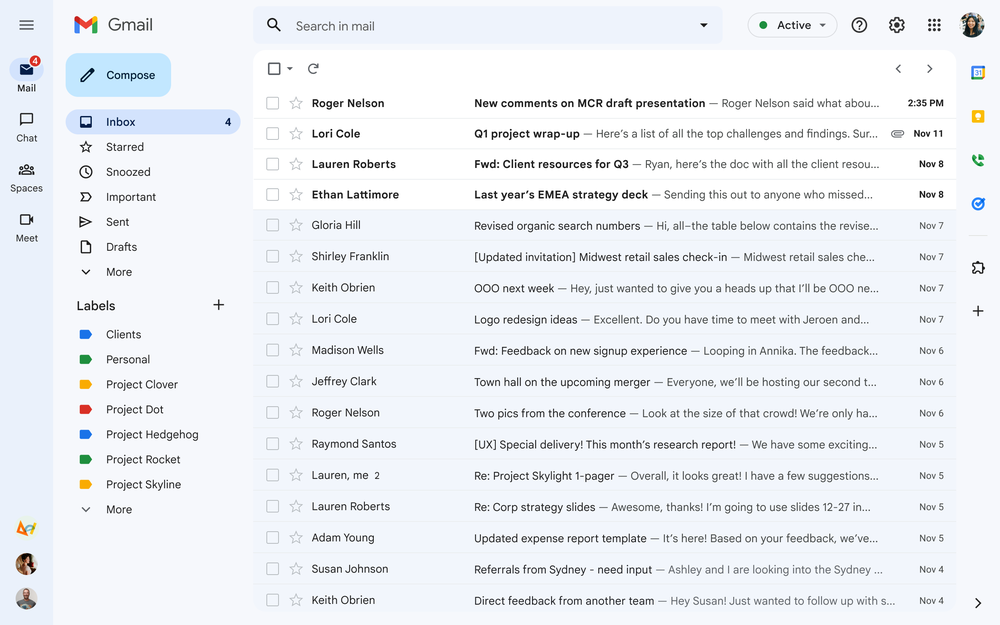 Google rolls out minor UI and search refresh for major productivity boost
Google rolls out minor UI and search refresh for major productivity boostNews New look Gmail tidies up Chat, Spaces and Meet apps as pop-out sidebar icons
-
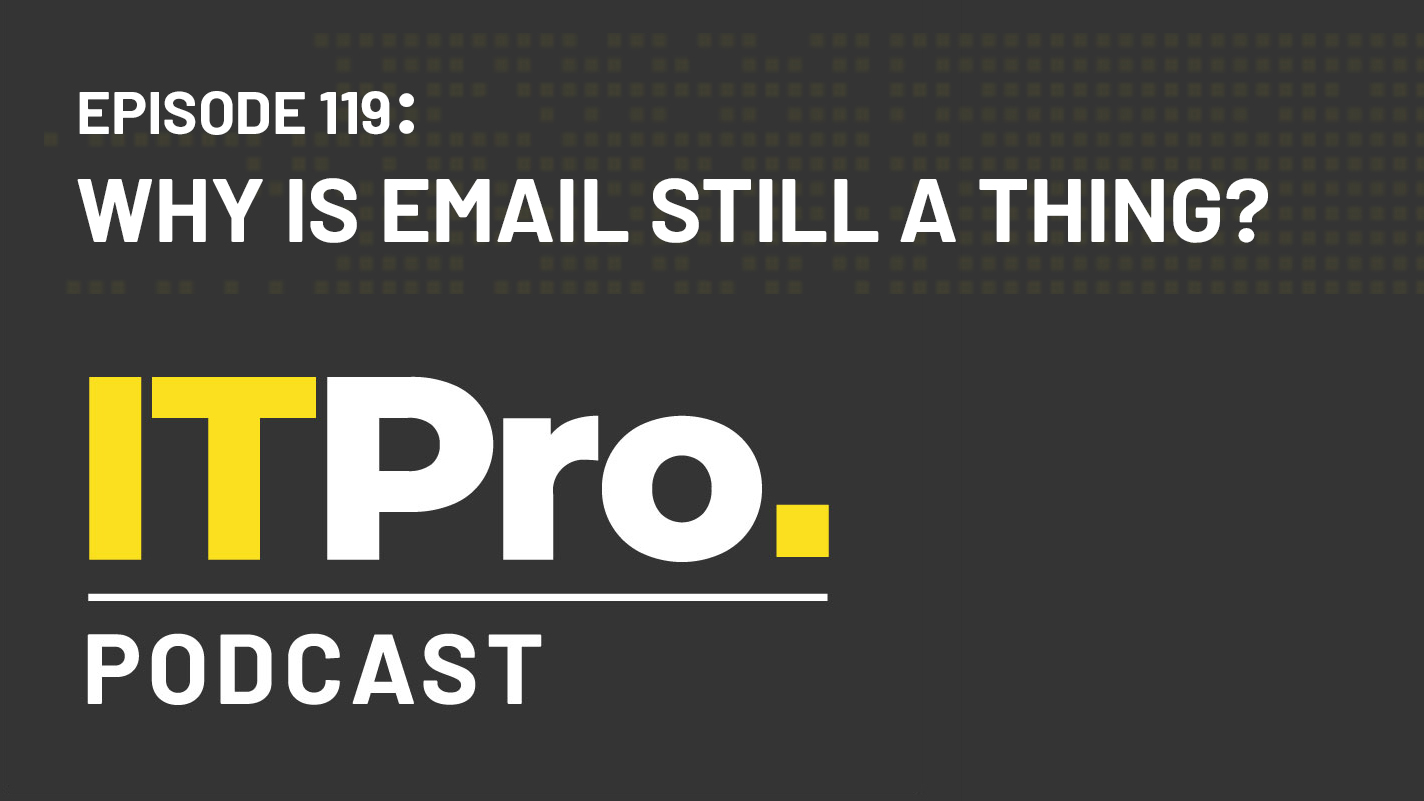 The IT Pro Podcast: Why is email still a thing?
The IT Pro Podcast: Why is email still a thing?IT Pro Podcast Despite a proliferation of newer collaboration platforms, email stubbornly refuses to go away
-
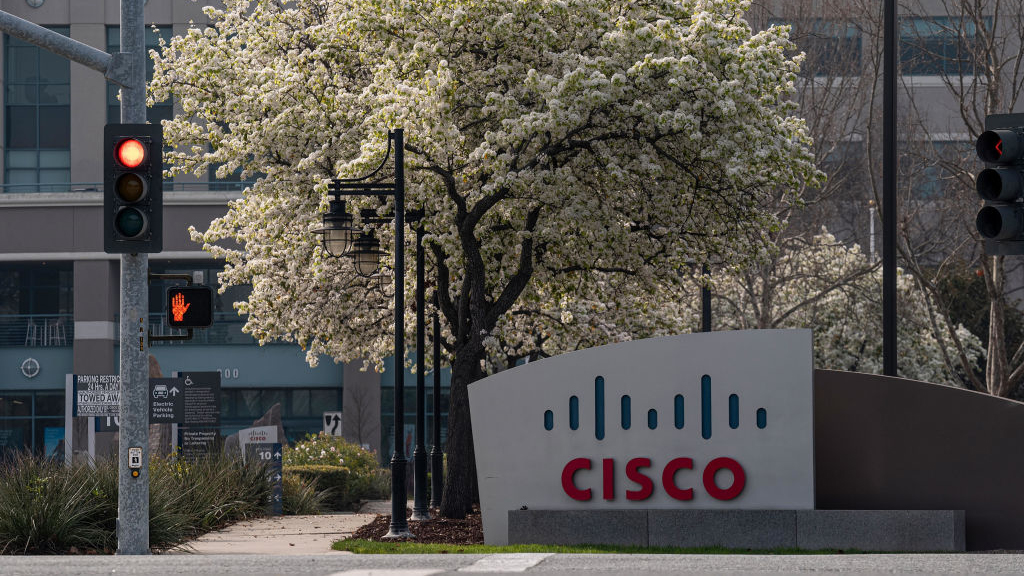 Cisco patches bug that could break its email security service with a single message
Cisco patches bug that could break its email security service with a single messageNews A carefully crafted email could freeze Cisco's Email Security Appliance interface and stop it processing messages
-
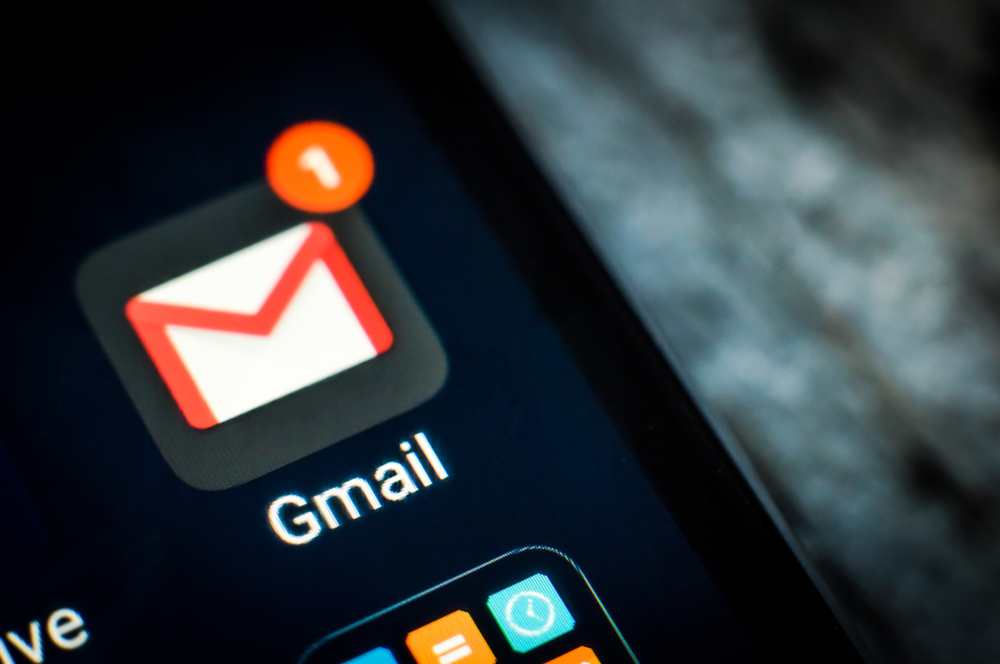 Gmail's new 'integrated view' layout will become default in April
Gmail's new 'integrated view' layout will become default in AprilNews Chat and Meet apps will have dedicated buttons and spaces alongside users' emails
-
 Google targets phishing with full BIMI email logo authentication support
Google targets phishing with full BIMI email logo authentication supportNews Gmail will tie logos to DMARC authentication
-
 Nokia achieves record 8Gbps speeds in 5G trial
Nokia achieves record 8Gbps speeds in 5G trialNews The new record is almost twice as fast as Nokia’s previous 5G milestone
-
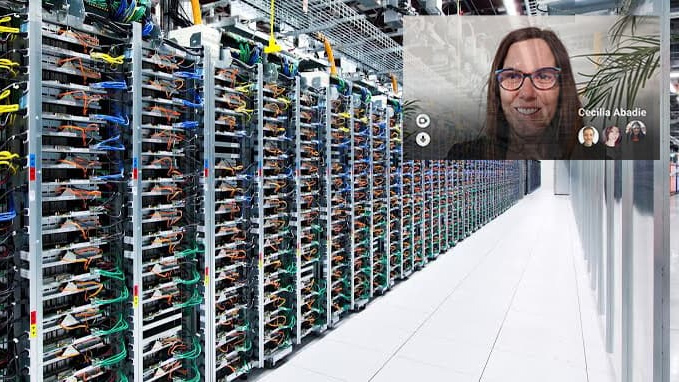 Google Glass now supports Meet video calls
Google Glass now supports Meet video callsNews New integration is available in beta for Enterprise Edition 2 of Google Glass
-
 In the end, email might actually kill off Slack
In the end, email might actually kill off SlackIn-depth Always-on culture is slowly invading the intimacy of your inbox with cloud technology

